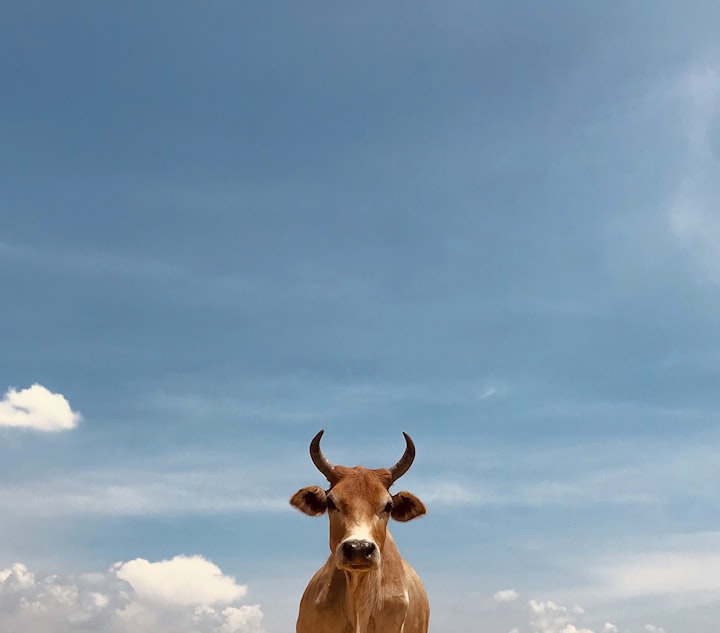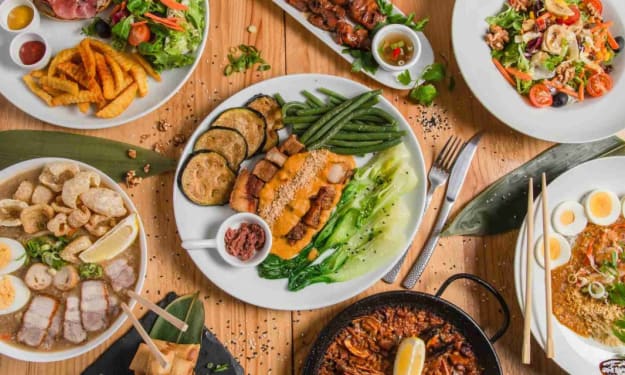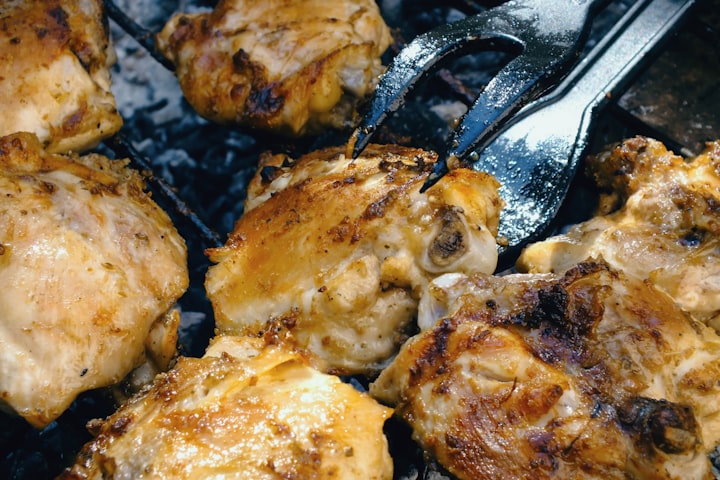Patriarchy On Your Plate
The weird sex change steaks have in my country.

About ten years ago (before I went vegan) I was visiting Finland with my Argentinian ex-boyfriend when my grandmother decided to take us out for dinner to my hometown's best steak restaurant.
We gladly accepted. But when I started translating the menu to my non-Finnish speaking date, I remembered the strange phenomenon that happens in every restaurant up there, in my home country: a sex change for the animal you're eating.
'Härkä' is the word for a bull, while 'lehmä' is the one for cow. In the supermarket, meat carries the generic name 'nauta', which applies to both the male and female, but it's usually cow meat. But when beef is sold in a steak restaurant, it's suddenly called 'härkä' on the menu, as in "bull meat".
Fun fact: even the restaurant was named after the word 'bull', albeit in a different language. Because that's their marketing strategy.
In Finland, beef has a sex change when it's marketed as high-quality. This could be a steak, but it could also be a very posh burger or a pasta Bolognese. Even if it's ground, you need to know your meat doesn't come from a female, right?
If this is the most ridiculous thing you've ever heard, you're absolutely right.
---
My ex was completely puzzled by this when I translated him the names of the various dishes on the menu.
"Why would anybody want to eat a bull? They're not usually raised for meat."
I took his words as coming from authority, given that he is from the land of beef. And it's true: nobody on the Argentine Pampa would sell you bull meat to eat. Their world-famous asados come from cows. And if you eat a good steak in a Finnish restaurant, that also comes from a cow in Argentina or Brazil. Not a Finnish bull.
A Finnish ex-boyfriend of mine was a line cook in the only fine dining-restaurant in my town, and he confirmed this.
"The bull meat arrives in the restaurant as cow meat, and only changes on your plate."
There's only one reason for this. The male animal's meat is considered more valuable. Because men are more valuable than women, even when you eat them.
I guess eating a bull, the very image of a strong and fearless male, makes men feel better about themselves. They want to imagine they're comparable to that animal somehow.
Yes, women choose to eat steak, too. But a steak restaurant in a small Finnish town like mine has survived for decades because of groups of men. Because of boys' nights, business dinners and social club meetings.
And it's not just that specific restaurant. When men go out to eat in Finland, they drink a lot of hard alcohol, and they eat meat. Manly bull meat, none of that estrogen-filled cow stuff. Eye roll.
---
Finland is often mentioned as one of the countries where gender equality is the most advanced. Finnish women had voting rights decades before their counterparts in the US. Finland had a female president already back in 2000, and currently has a governing coalition of four female party leaders.
But it's not like sexism doesn't exist. Machismo is a part of Finnish culture, too, and true equality is still a dream. You only have to compare the ridiculous criticism Prime Minister Sanna Marin receives to previous PMs, and you'll notice it's because of sexism, not because she's done something wrong.
Politics is still a boys' club in Finland. Women are still perceived as weaker in society. And notions of good and bad are still marked by sexism. Patriarchy even affects the name of the food on your plate.
---
This story was originally published by me, on Medium.
About the Creator
Taru Anniina Liikanen
Finnish by birth, porteña at heart. Recovering political ghostwriter. Fiction, relationships, politics, bad puns, popular and unpopular opinions. Occasional dinosaurs, because dinosaurs are the best.






Comments
There are no comments for this story
Be the first to respond and start the conversation.